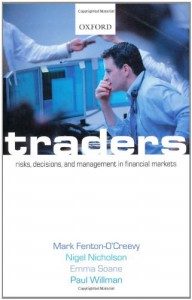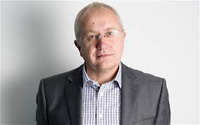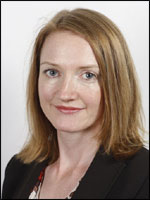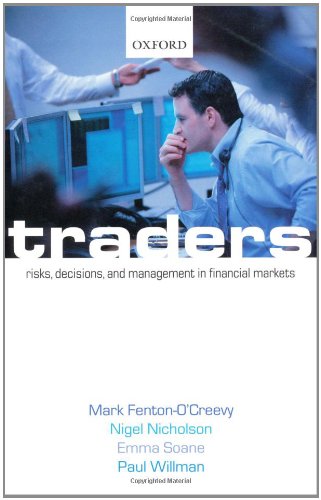 |
This is a book about traders in financial markets: what they do, the kind of people they are, how they perceive the world they inhabit, how they make decisions and take risks. This is also a book about how traders are managed – the best and the worst examples – and about the institutions they inhabit: firms, markets, cultures, and theories of how the world works. How these institutions function, how traders are managed, and how traders view the world, all have profound effects on the wider financial environment. This book explores these relationships and their implications theoretically and empirically.The data discussed in this book draw on a three-year project researching the psychological and social influences on the behaviour and performance of traders in investment banks. 118 traders and managers in four leading organizations participated. Data were collected through semi-structured interviews supplemented by questionnaires, measures of personality, risk propensity and a novel computer based measure designed to assess illusion of control and other cognitive biases.The authors’ approach to writing this book is explicitly interdisciplinary. They draw on sociology, psychology and economics in order to illuminate the work of traders and the world they inhabit.The book is a significant contribution to the growing body of research and literature which suggests that if we are to effectively understand financial markets and the actors who inhabit them, the insights of neo-classical financial economics need supplementing with a broader range of social science approaches.
The book will be of value to researchers interested in the functioning of financial institutions and markets, to those with an interest in market regulation and to practitioners wishing to benefit from an analytical perspective on the challenges facing traders and their managers. |
|
| About the Author Mark is Professor of Organisational Behaviour at The Open University Business School and Associate Dean International Strategy. From 2005 to 2010 he was Director of a government funded Centre for Excellence in Teaching and Learning – the Centre for Practice-based Professional Learning across four faculties of The Open University. He was awarded a National Teaching Fellowship in 2007 and was made a Senior Fellow of the Higher Education Academy in 2009.Mark has led a varied career. He has at various times worked as a school groundsman, a commis chef, a mathematician in a government research establishment, an outdoor pursuits instructor, a teacher of mathematics, a therapist with emotionally disturbed adolescents, a management consultant, and latterly a business school academic.Dr Emma Soane joined the Employment Relations and Organisational Behaviour Group in September 2008. She graduated in Psychology from Leicester University in 1990 then worked in mental health and learning disabilities services at several NHS trusts and social services. She completed her MSc in Occupational Psychology from the Institute of Work Psychology at the University of Sheffield in 1996 and began her part-time PhD there while working as a Research Fellow at London Business School. She completed her PhD in 2001 and continued working at London Business School until 2003 whereupon she moved to a Senior Lecturer position at Kingston Business School, progressing to Reader in 2005.Dr Soane works with Duke Corporate Education delivering executive education focused on leadership and personality. She also teaches personality at Saïd Business School, University of Oxford. She is an Assistant Director of the Kingston Business School Employee Engagement Consortium. She works as a consultant with individual clients and organisations, focussing on leadership and professional development.Nigel Nicholson left school at the age of 16 to become a journalist, and only resumed his education later, having worked for two years as a reporter on local newspapers, wandered the globe, and been employed in various strange jobs. He read Psychology at university, followed by a PhD in Work and Organisational Psychology, via a huge research project on absence from work, a topic that occupied much of his early research writing and thought. He joined the Social and Applied Psychology Unit at the University of Sheffield where he worked on issues of labour-management relations, industrial conflict, organisational change, innovation, and management career mobility. He moved to London Business School in 1990, where in addition to two periods as OB Chairman he has been Research Dean, a Deputy Dean and member of the Governing Body. He has had spells as a distinguished visitor at universities in the USA, Germany, Canada, Ghana and Australia, and is a Fellow of the International Association of Applied Psychology, the British Academy of Management and the British Psychological Society. He has been honoured for my contribution to theory and method by awards from the Academy of Management in the USA, and IAAP. Paul Willman is Professor of Management in the Department of Management. Until August 2006, he was Professorial Fellow of Balliol College, Oxford and the inaugural Ernest Butten Professor of Management in the Said Business School, Oxford University, Director of Executive Education at Oxford 2001-3, founding Director of the Oxford EMBA and director the Doctoral Programme there from 2004-6. Prior to that he was Professor of Organisational Behaviour and Industrial Relations at London Business School from 1991-2000, Director of the Sloan Programme, 1989-92 and Head of the Organisational Behaviour Group 1998-2000. He has also held research fellowships at Imperial College and Nuffield College, Oxford. He was Editor in Chief of Human Relations (2000-6) and is a Fellow of the Centre for Economic Performance (CEP) and Research Associate in the Centre for the Analysis of Risk and Regulation (CARR). He is the author of nine books and numerous articles in academic journals |
 
|
|


